Battle for Number 10: Miliband survives a rough ride but Cameron takes the edge in first TV battle
Cameron was able to stand up before his audience as the confident, debonair performer

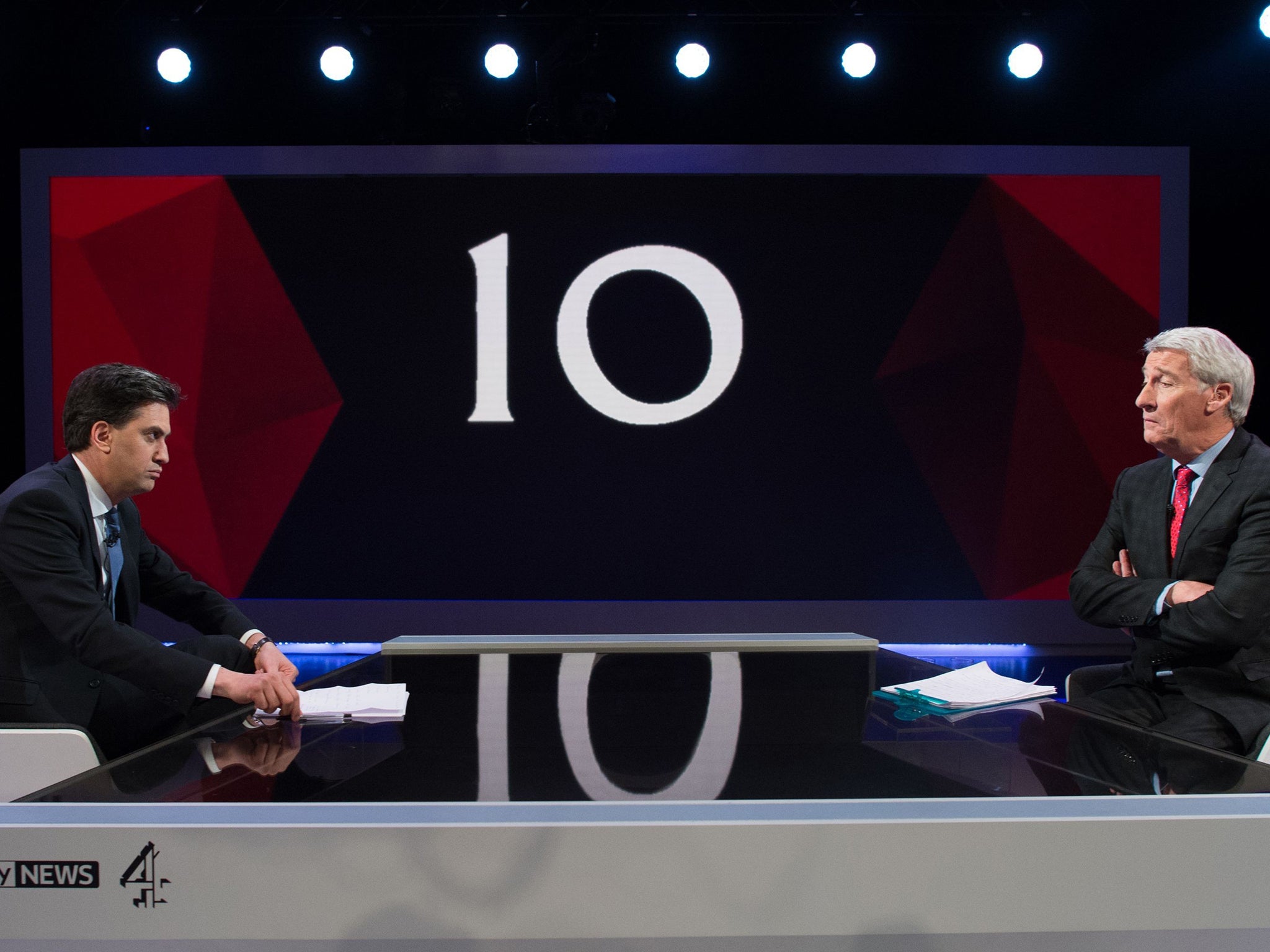
In opting to be interviewed by Jeremy Paxman and a live studio audience, David Cameron thought he would face a less challenging and risky encounter than debating head to head with his principal opponent, Labour leader Ed Miliband.
He certainly got it half right. During the Prime Minister’s appearance in the first of a series of TV appearances ahead of the election, the Sky News and Channel 4 studio audience was polite and deferential. And for the most part it lacked the opportunity and nerve to challenge him on his answers.
Sky’s Kay Burley did little to assist them. Cameron was able to stand up before his audience as the confident, debonair performer. He reckoned he had the audience in his pocket.
The Prime Minister’s encounter with Jeremy Paxman at the beginning of the programme had been a much more difficult affair. Paxman made his name as the chief terrier of television interviewers many years ago. He was evidently intent on living up to that reputation in this broadcast.
The focus of the interview was Cameron’s record. The two big themes were that his government had allegedly cared more for the rich than the poor and had failed to deliver on key promises made five years ago.
The Prime Minister looked uncomfortable when asked about the number of food banks that had opened under his watch – a question to which he did not have a ready answer. Much the same was true when he was asked if he could live on a zero-hours contract.
Meanwhile, he looked decidedly frustrated as Paxman pointed to the government’s failure to eliminate the deficit, to cut immigration to tens of thousands a year, and to avoid an increase in VAT.
Cameron wanted to talk about his vision for the next five years rather than the limitations of his time in office. He was given little opportunity to wax on his preferred theme – how his government has turned the economy around.
But if the audience and Burley did little to push Cameron, the same was not true when it came to Ed Miliband’s turn. The questions were more antagonistic, including one about whether the Labour party had made a mistake in choosing him as leader rather than his brother. Burley, too, seemed more willing to challenge Miliband’s responses, even allowing members of the audience to ask follow-ups to questions that had been posed by others.
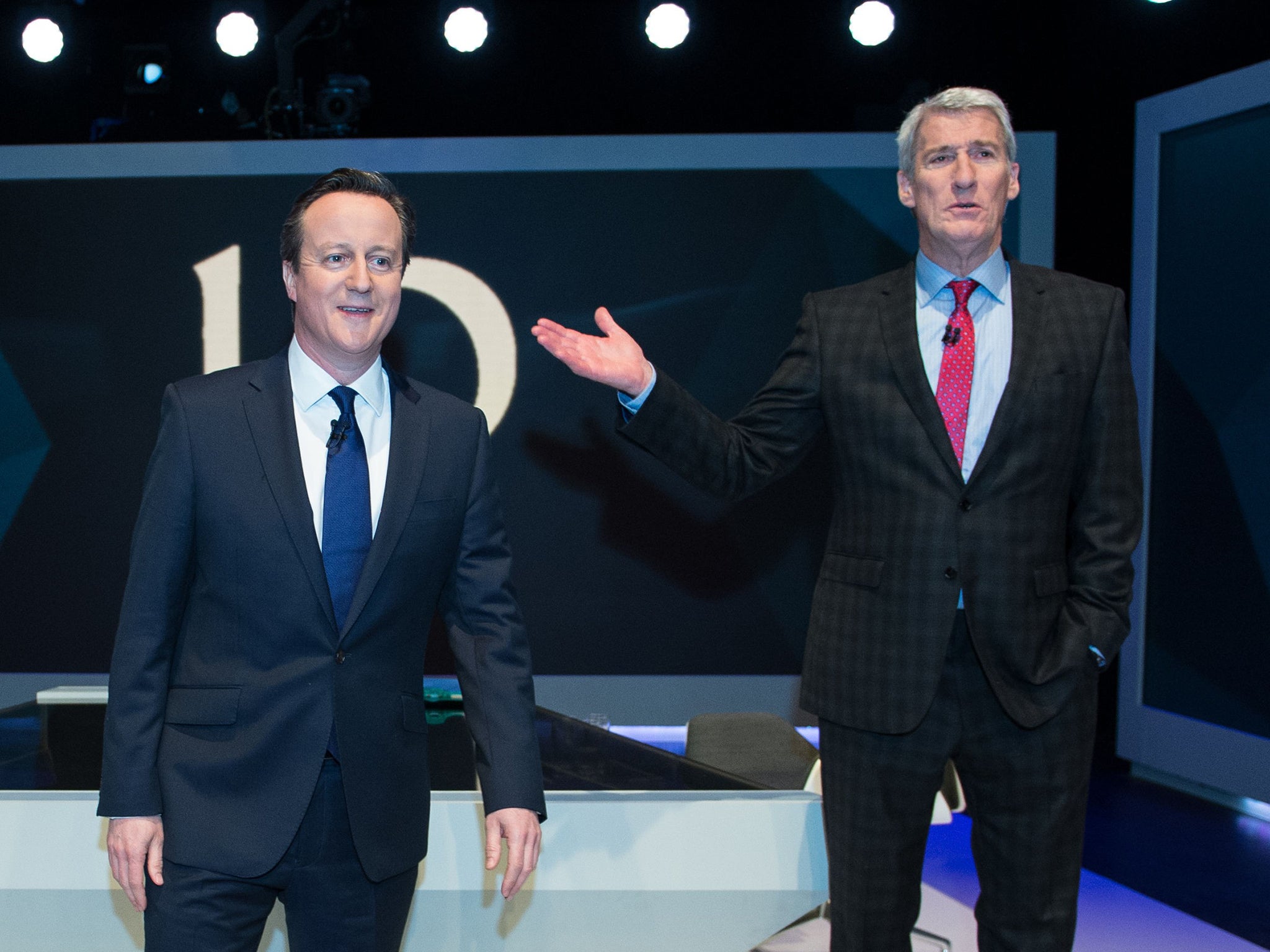
Yet perhaps Miliband’s style begat this more fluid interchange. His manner was more energetic, if not even slightly frenetic and perhaps rather too full of nervous energy. It certainly constituted something of a contrast to Cameron’s self-confident air.
Even so, it was again the grilling from Paxman that was the more challenging part of the ordeal for Miliband. At first at least, Paxman succeeded in getting under Miliband’s skin. The Labour leader’s eyes rolled in frustration at being perpetually asked whether he thought there was a limit to the number of people who should live in Britain.
The Labour leader eventually managed to turn the tables on his inquisitor when, in response to the suggestion that he would have to dance to Alex Salmond’s tune after May 7, he suggested that not even someone as important as the former BBC Newsnight presenter could presume to know what the result would be on election night. That won him one of the few rounds of applause of the night.
Apart from the difference in style, perhaps the biggest contrast in how the two men addressed the evening lay in the way they responded to alleged failures of their party’s past.
Cameron always seemed reluctant to concede fault and mistakes during his watch. Miliband, in contrast, readily admitted to past failures on immigration and inequality – though not on the level of the fiscal debt in Labour’s later years in office.
But while admitting mistakes may seem more honest, it may not necessarily persuade voters that you have learnt from them.
In any event, according to an instant poll conducted by ICM for The Guardian, neither man scored a decisive victory. Viewers put Cameron slightly ahead – by 47% to 41% – when respondents were asked who won the debate.
However, according to ICM only 8% said that watching the debate had changed their mind about how they would vote, and even then in some cases this apparently meant they were now simply firmer in their prior inclination.
Amongst those who supposedly did change their mind, Miliband apparently won more votes than Cameron. Perhaps for some he exceeded the low expectations they previously had of him, whereas Cameron was being judged by a higher standard. Either way though, Miliband will probably have to be a lot more persuasive in the next six weeks if he is to emerge as the more popular of the two leaders.

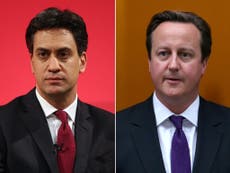
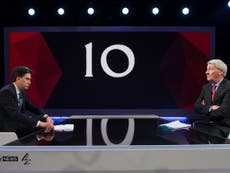
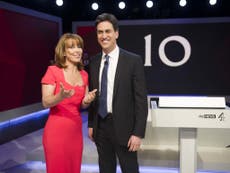
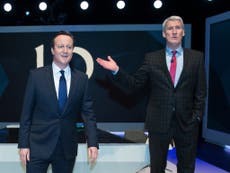
Join our commenting forum
Join thought-provoking conversations, follow other Independent readers and see their replies